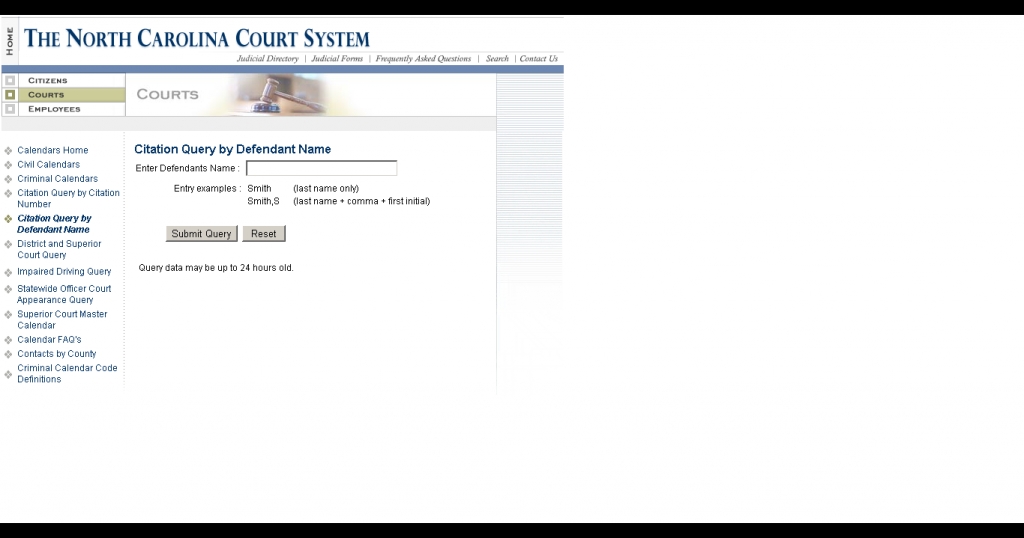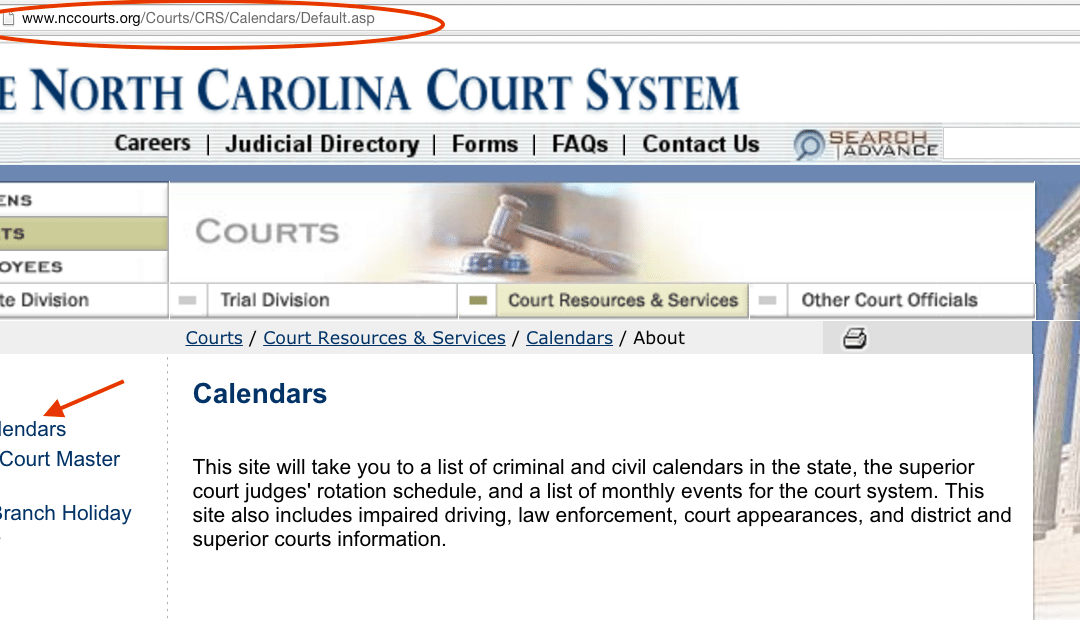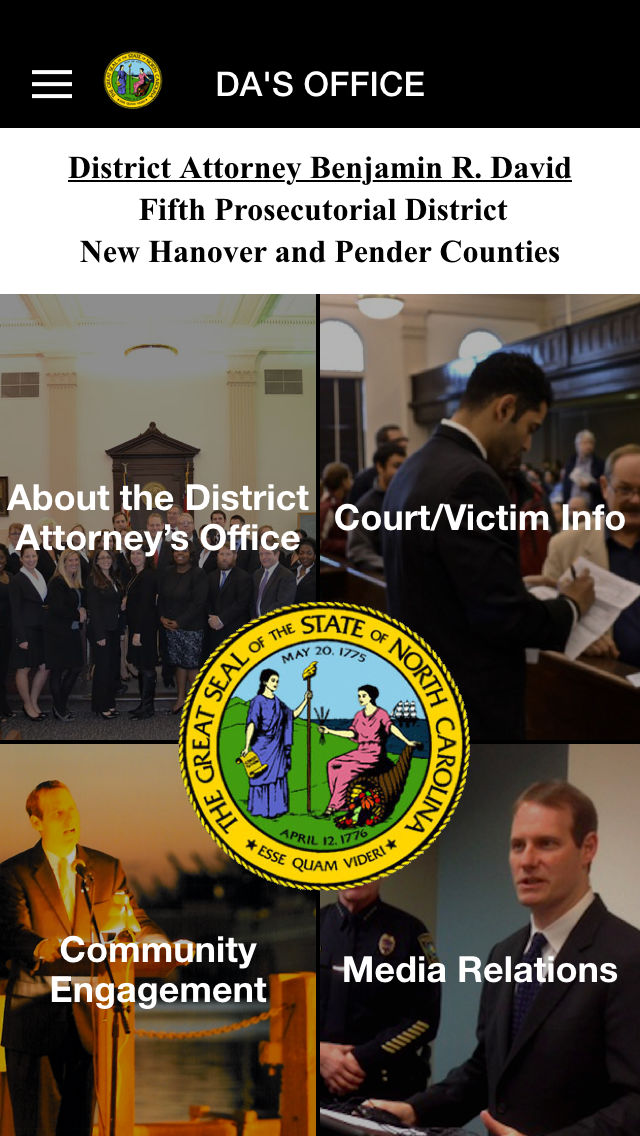North Carolina District Court Calendar: Your Ultimate Guide To Court Dates And Procedures
Ever wondered how the North Carolina district court calendar works? Well, buckle up, because we’re about to dive deep into the world of court schedules, deadlines, and everything in between. If you’ve ever felt lost trying to navigate the legal system, this article is here to help. Whether you’re an attorney, a defendant, or just someone curious about the inner workings of the courts, we’ve got you covered. So, let’s get started!
Now, I know what you’re thinking—court calendars sound boring, right? But trust me, they’re more important than you think. The North Carolina district court calendar isn’t just a list of dates; it’s a roadmap for justice. Understanding how it works can save you time, money, and a whole lot of stress. Plus, we’ll sprinkle in some interesting facts and tips to keep things engaging.
By the end of this article, you’ll know exactly how to find your court date, what to expect on the big day, and how to stay organized. So, grab a coffee, sit back, and let’s unravel the mysteries of the North Carolina district court calendar together!
Read also:Vigo County Recent Arrests Mugshots Stay Updated On The Latest Legal Buzz
Why the North Carolina District Court Calendar Matters
Let’s face it—court dates can be overwhelming. But here’s the deal: the North Carolina district court calendar is your lifeline when it comes to legal matters. It keeps everyone on track, from judges to attorneys to everyday folks like you. Think of it as the backbone of the judicial system, ensuring that justice is served efficiently and fairly.
For starters, the calendar helps organize thousands of cases across the state. Imagine trying to juggle all those cases without a system—it’d be chaos! By having a structured schedule, the courts can handle everything from traffic violations to criminal cases with ease. And hey, if you’re dealing with a legal issue, knowing your court date is crucial. Missing it could mean big trouble, so staying informed is key.
What to Expect on the Court Calendar
So, what exactly will you find on the North Carolina district court calendar? Well, it’s a treasure trove of information. You’ll see everything from case types to hearing dates, all neatly organized for easy access. Here’s a quick rundown:
- Civil Cases: Think disputes over contracts, property, or personal injuries.
- Criminal Cases: Everything from minor infractions to serious offenses.
- Traffic Violations: Yep, even speeding tickets have their place on the calendar.
- Family Law Matters: Divorces, child custody, and more.
And that’s just the tip of the iceberg. The calendar also includes pre-trial conferences, settlement hearings, and other important events. It’s like a one-stop shop for all things legal in North Carolina.
How to Access the North Carolina District Court Calendar
Okay, so now you know why the calendar matters. But how do you actually get your hands on it? Fear not, because accessing the North Carolina district court calendar is easier than you think. Thanks to modern technology, most counties offer online access to their calendars. All you need is a computer or smartphone, and you’re good to go.
Most counties use platforms like the North Carolina Judicial Branch website or local court portals. Simply head to the website, select your county, and voilà—you’ve got access to the calendar. Some counties even offer mobile apps, making it super convenient to stay updated on the go. And if you’re old-school, don’t worry—you can always visit the courthouse in person to check the calendar.
Read also:Highs Funeral Home Obituary Mcminnville Tennessee A Heartfelt Tribute
Tips for Navigating the Online Calendar
Now that you know where to find the calendar, here are a few tips to make your life easier:
- Use filters: Most online calendars let you filter by case type, date, or party name. This saves you time and ensures you find exactly what you’re looking for.
- Set reminders: If you find your court date, set a calendar reminder on your phone. You don’t want to miss it!
- Check frequently: Court dates can change, so it’s a good idea to double-check the calendar closer to your hearing date.
And remember, if you’re ever unsure about something, don’t hesitate to reach out to the court clerk. They’re there to help and can clarify any questions you might have.
Understanding Court Dates and Deadlines
Now that you’ve found your court date, let’s talk about what it means. Court dates aren’t just random numbers on a calendar—they’re critical deadlines that can affect the outcome of your case. Whether you’re a plaintiff, defendant, or witness, showing up on time is non-negotiable.
Here’s a breakdown of what to expect:
- Pre-Trial Hearings: These are meetings where both sides discuss the case and try to reach a settlement. Think of it as a dress rehearsal for the trial.
- Trial Dates: This is the big day. Both sides present their evidence, and the judge or jury makes a decision.
- Post-Trial Proceedings: If you’re unhappy with the outcome, you might have options for appeal. But that’s a topic for another day!
And let’s not forget about deadlines. From filing motions to submitting evidence, staying on top of these deadlines is crucial. Missing them could hurt your case, so mark them on your calendar and stick to them.
What Happens If You Miss Your Court Date?
This is serious business, folks. If you miss your court date without a valid reason, the consequences can be severe. Depending on the case, the court might issue a warrant for your arrest or dismiss your claim altogether. Not good, right?
But here’s the thing: life happens. If you can’t make it to court, contact the clerk immediately. They might allow you to reschedule or provide other options. Just don’t ignore the issue—it’ll only make things worse.
Key Players in the North Carolina District Court System
Every court case involves a cast of characters, each playing a vital role. Let’s meet the key players:
- Judges: The decision-makers who ensure justice is served.
- Attorneys: The advocates who represent you in court.
- Court Clerks: The unsung heroes who keep everything running smoothly.
- Jurors: Everyday citizens who help decide the outcome of certain cases.
Each of these players has a specific role, and understanding their responsibilities can help you navigate the system more effectively. For example, if you have a question about your case, the court clerk is your go-to person. They’re like the concierge of the legal world, always ready to assist.
The Role of the Judge in the Court Calendar
Judges are the heart and soul of the court system. They oversee hearings, make rulings, and ensure that everyone follows the rules. But did you know they also play a key role in managing the court calendar? Judges work closely with court clerks to schedule hearings, trials, and other events. They balance efficiency with fairness, ensuring that every case gets the attention it deserves.
And here’s a fun fact: judges often have their own preferences when it comes to scheduling. Some prefer back-to-back hearings, while others like to space them out. It all depends on the judge and the nature of the cases.
Preparing for Your Court Date
Now that you know the ins and outs of the North Carolina district court calendar, it’s time to prepare for your big day. Here’s how:
- Gather Your Documents: Make sure you have all the necessary paperwork, including evidence, witness statements, and legal filings.
- Consult Your Attorney: If you have one, lean on their expertise. They’ll guide you through the process and help you build a strong case.
- Plan Ahead: Know where the courthouse is, what time your hearing starts, and what to wear. Dressing appropriately shows respect for the court.
And don’t forget to practice what you’re going to say. Whether you’re testifying or presenting your case, being prepared can make all the difference. Remember, confidence is key.
What to Expect on the Day of Your Hearing
On the day of your hearing, things can move quickly. Here’s what to expect:
- Check-In: Arrive early and check in with the court clerk. They’ll confirm your presence and let you know when your case will be called.
- Wait Your Turn: Depending on the court’s schedule, you might have to wait a bit. Use this time to review your materials and stay calm.
- Presentation: When your case is called, step up and present your side. Speak clearly, stay respectful, and stick to the facts.
And remember, the judge is there to listen. If you’re unsure about something, ask for clarification. It’s better to seek clarity than to make a mistake.
Common Misconceptions About Court Calendars
There are a few myths floating around about court calendars, and it’s time to set the record straight. Here are the top three:
- Myth #1: Court calendars are secret. Nope! Most court calendars are public record and easily accessible online.
- Myth #2: You can’t change your court date. While it’s not always easy, rescheduling is possible with a valid reason.
- Myth #3: Court dates are flexible. Sorry, but that’s not true. Court dates are set for a reason, and missing them can have serious consequences.
So, now you know the truth. Court calendars are transparent, adaptable (within reason), and crucial to the legal process. Don’t fall for these myths—they could cost you.
Why Transparency in Court Calendars Matters
Transparency is the foundation of a fair legal system. By making court calendars public, North Carolina ensures that everyone has access to the same information. This promotes trust, accountability, and equal treatment under the law. It’s a win-win for everyone involved.
And here’s another benefit: transparency empowers citizens. When you know what’s happening in the courts, you’re better equipped to participate in the legal process. Whether you’re a litigant, a juror, or just a curious observer, access to the court calendar gives you a front-row seat to justice in action.
Final Thoughts on the North Carolina District Court Calendar
Well, there you have it—a comprehensive guide to the North Carolina district court calendar. From understanding its importance to navigating its complexities, we’ve covered it all. Remember, the calendar isn’t just a list of dates—it’s a tool that can help you navigate the legal system with confidence.
So, what’s next? If you’re dealing with a legal matter, take action. Check the calendar, gather your materials, and prepare for your court date. And don’t forget to share this article with anyone who might find it helpful. Knowledge is power, and the more people understand the court system, the better off we all are.
Got questions or comments? Drop them below—I’d love to hear from you. And hey, if you found this article helpful, check out some of our other posts. There’s always more to learn, and I’m here to help!
Table of Contents
- North Carolina District Court Calendar: Your Ultimate Guide
- Why the North Carolina District Court Calendar Matters
- What to Expect on the Court Calendar
- How to Access the North Carolina District Court Calendar
- Tips for Navigating the Online Calendar
- Understanding Court Dates and Deadlines
- What Happens If You Miss Your Court Date?
- Key Players in the North Carolina District Court System
- The Role of the Judge in the Court Calendar
- Preparing for Your Court Date
- What to Expect on the Day of Your Hearing
- Common Misconceptions About Court Calendars
- Why Transparency in Court Calendars Matters
- Final Thoughts on the North Carolina District Court Calendar


